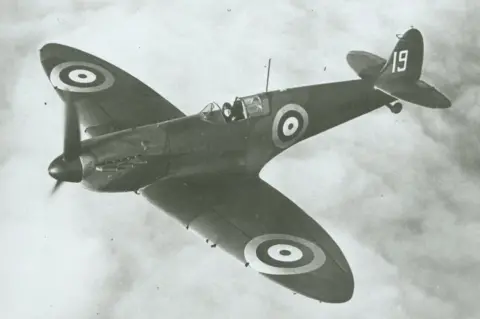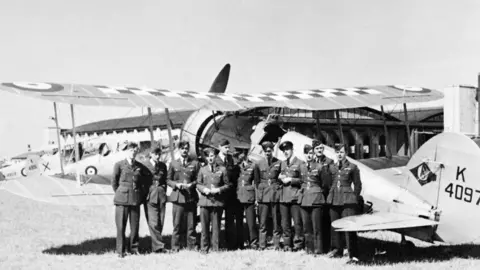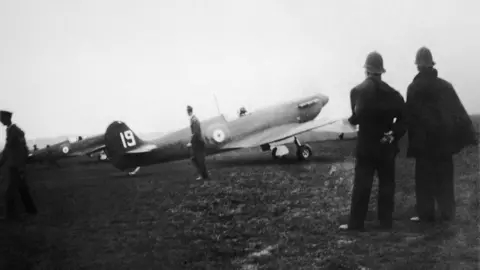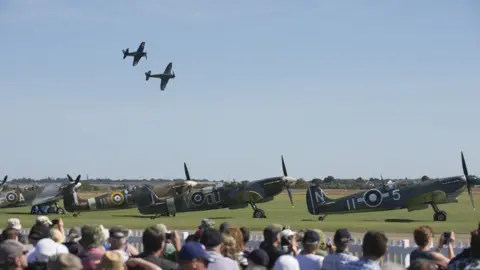Spitfires to perform at Duxford Battle of Britain Air Show
 IWM
IWMA rare Spitfire is set to fly solo at the airfield where the aircraft first entered operational service.
The Mark 1's performance will precede a formation of 18 Spitfires above IWM Duxford in Cambridgeshire, from where the fighter first flew on 4 August 1938, to mark the 80th anniversary.
The World War Two aircraft form part of the final commemorative event of the RAF centenary year at the weekend.
The public can also see the RAF's new Tempest fighter for the first time.
Duxford Battle of Britain Air Show, which has sold out, will also include displays from replica World War One aircraft, through to contemporary RAF fighters.
Cold War jets and 1930s biplanes will also be on show alongside the Spitfires.
The Spitfire was developed in the run-up to the outbreak of World War Two, and is widely credited with playing a decisive part in the Battle of Britain in 1940.
Imperial War Museum historian Carl Warner said the new plane posed difficulties for pilots, but became a "firm favourite" by 1939.
 IWM
IWM IWM
IWM IWM
IWMIn recordings made after the war, Pilot Officer Gordon Sinclair admitted to having to overcome an "in-born fear of it" after turning it upside-down on landing.
Mr Warner said: "It was difficult for them to get used to. There were quite a few accidents, and some pilots forgot to lower its retractable undercarriage.
"But it combined potent ability with a great deal of beauty and it very much became a firm favourite - and that was before it went to war.
"When combined with the equally important Hawker Hurricane and wielded by brave young men in defence of the nation, it ensured that Britain and the Commonwealth could remain an undefeated opponent of Nazism, a vital precondition for the eventual liberation of Europe and the securing of a free world."
